I wrote in my last post that less and less of what is consumed today in Spain is produced traditionally but I am discovering that there are still plenty of things that are, and most surprisingly to me, one of those things is olive oil. Not all of it , of course. Spain produces 80% of the world’s olive oil so you can be quite sure that they have got the whole thing quite streamlined. However, down here in the south at least, it’s quite common to come across small family run mills still using old traditional methods to produce excellent and totally natural olive oil.
Come November, when the skies are clear and fresh and the rains have finally revived the parched ground, the olive trees are heavy with ripe fruit. Dotted in amongst them are small groups of people, sticks in hand, hitting the branches, shaking the trees, to loosen the plump olives. They move from tree to tree catching the fruit as it rains down in the nets placed beneath. it is a scene which repeats itself all throughout this part of the world as it has been for thousands of years.
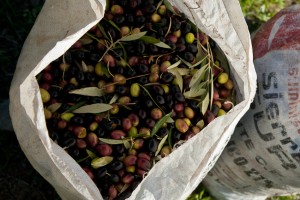
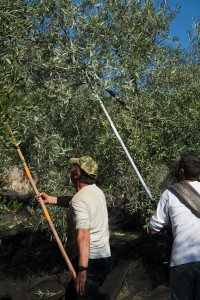
In the most traditional of mills, the olives, once washed and stripped of leaves, are crushed into a thick pulp by large millstones. This thick oily paste is spread onto round fibre mats which are placed in layers onto a huge hydrolic press. Once fully loaded, the press goes into action and the oil is squeezed out through the mats and drips into channels below. The channels run throughout the mill and take the thick green liquid into terracotta vats and ceramic basins. The air is thick with the heady smell of the crushed olives, with a bitterness that catches you in the back of the throat. The floor is dangerously slippery!
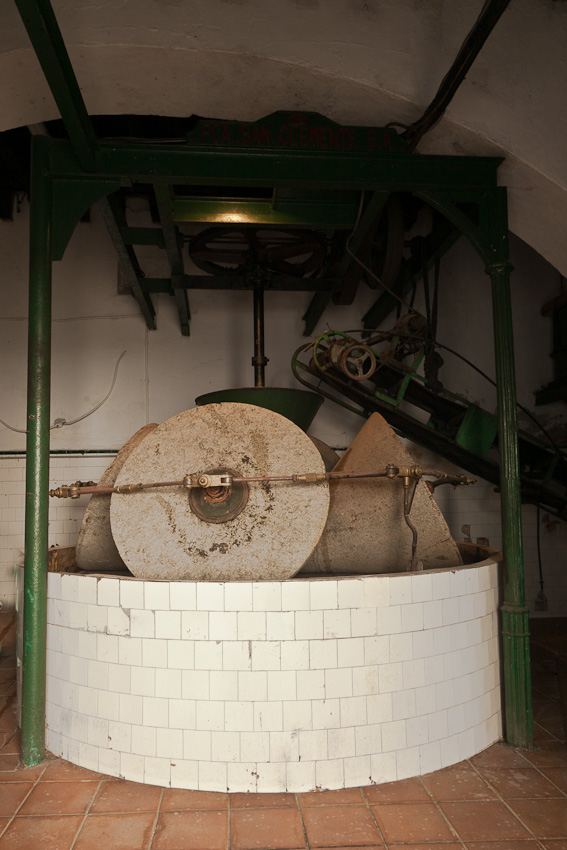
It all looks a bit messy in the basins – like a thick dark green soup bearing little resemblance to what we pour onto our salads. But once it is left to sit for a while, a process of natural decantation takes place. Gravity allows the solids to sink and the oil and the water to separate. Once that happens, this virgin oil is drained off and stored in stainless steel vats until bottled.
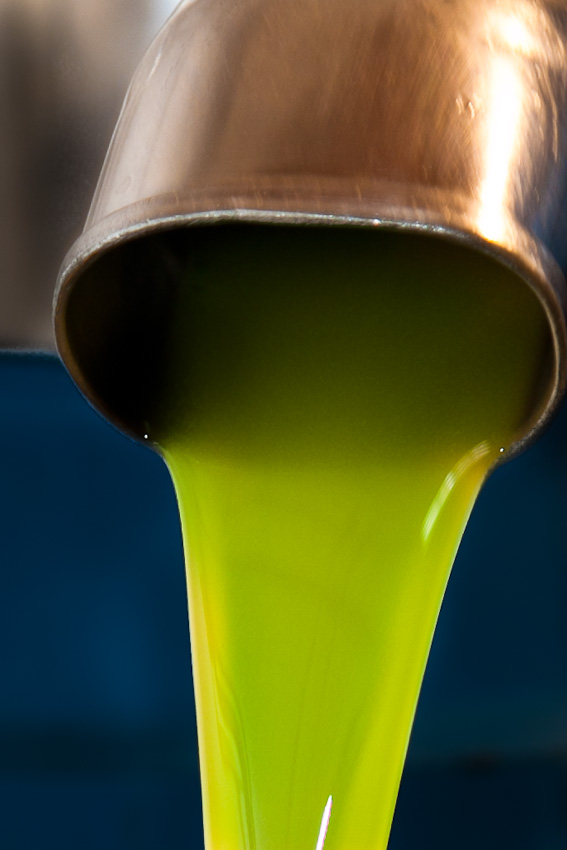
Needless to say, this method requires time and the mills that produce large quantities now use more mechanised methods. But these traditional mills still exist and take pride in what they do. Hopefully they will stay around. It just feels so good to know that some things don’t change and that this wonderful product is as natural and potent it was when it was first brought by the Phoenicians to these shores over 3000 years ago.
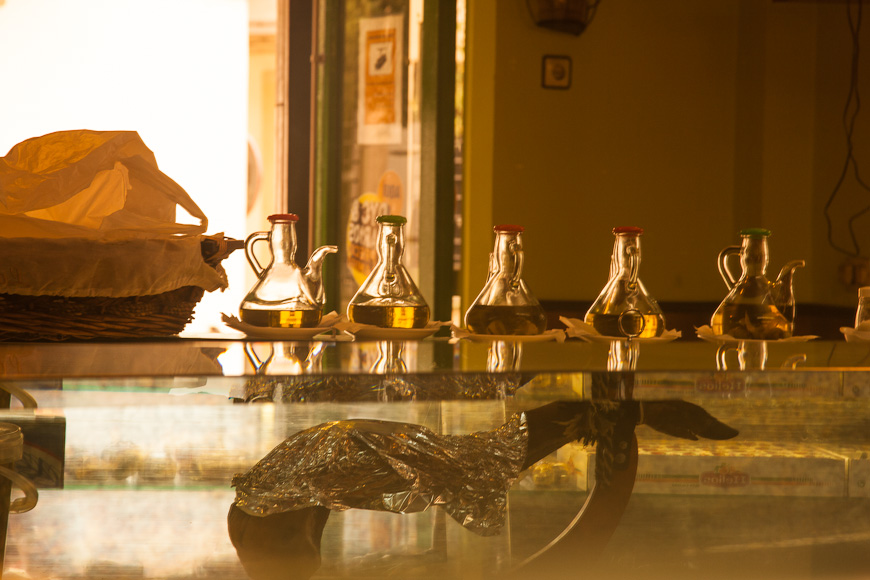
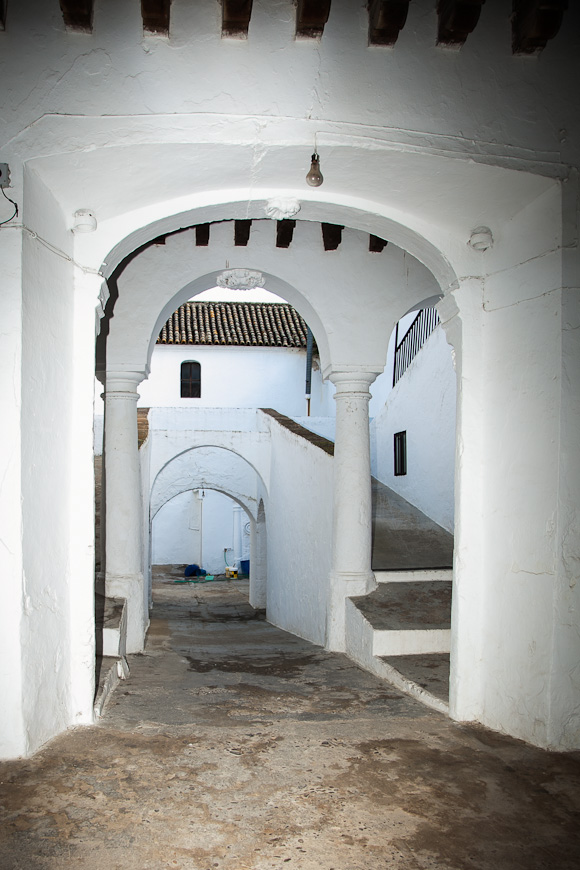
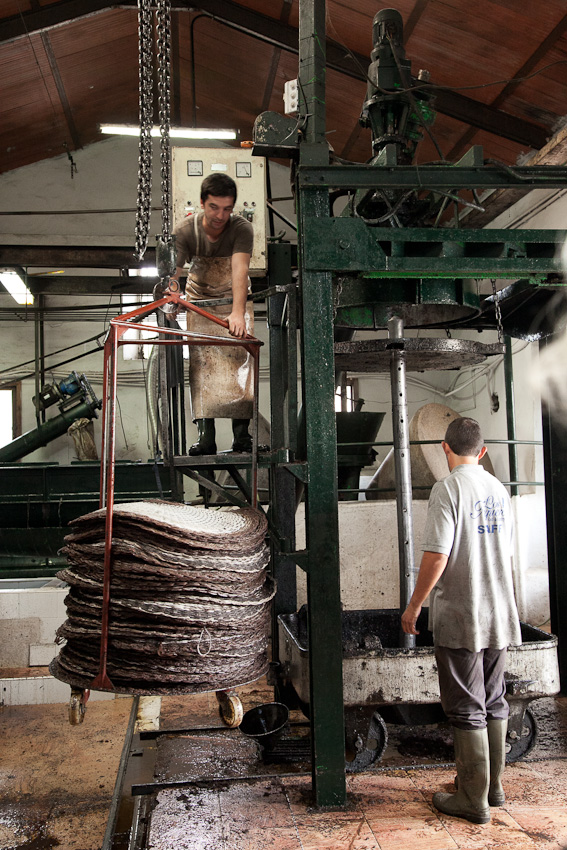
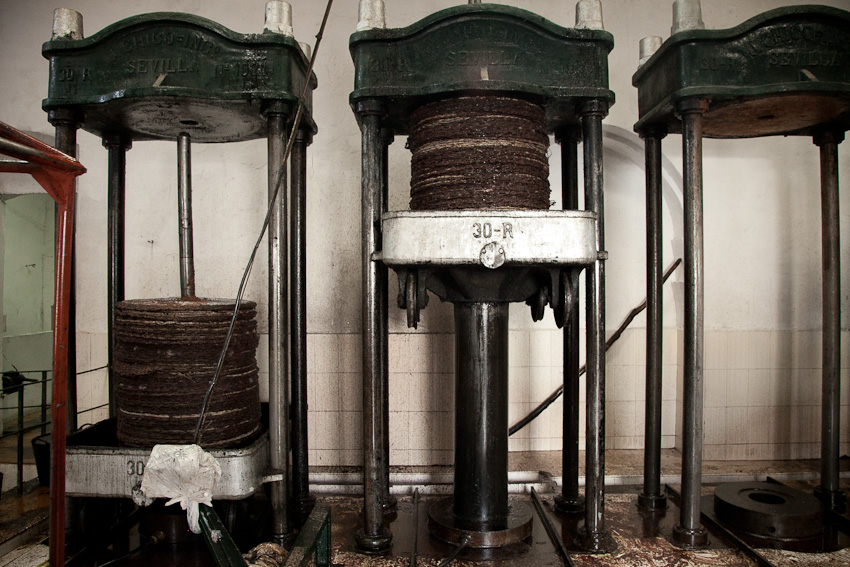
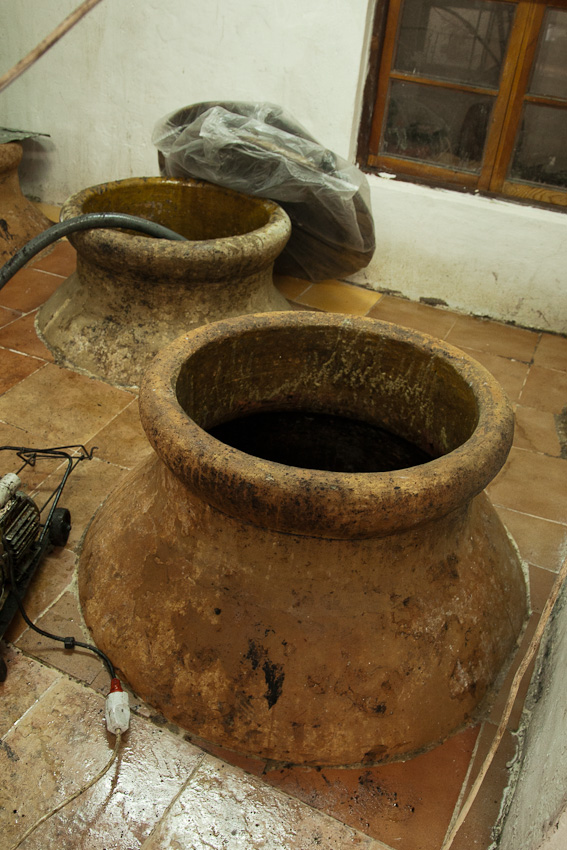
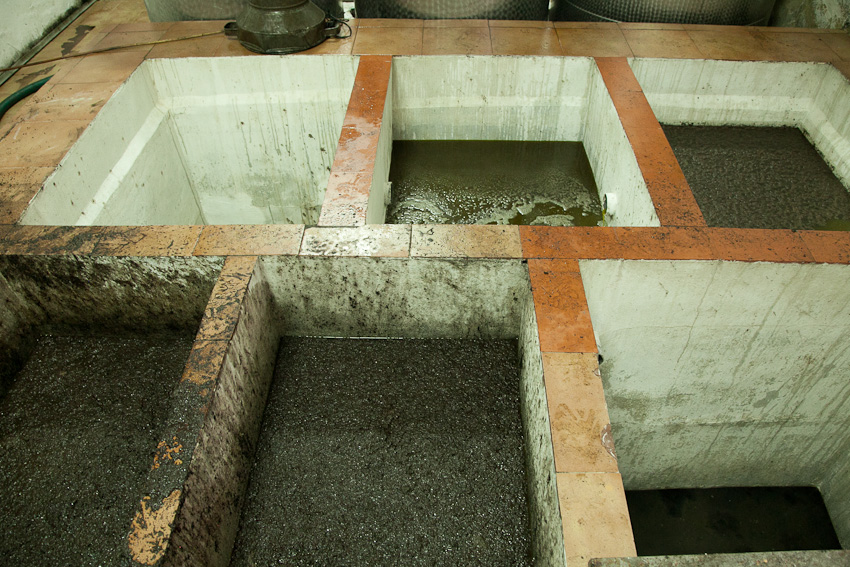
La Casa Rosa says
Beautiful post Sharon !
You know olive trees are, with wheat and vine, the base of our Mediterranean ancestral healthy and balanced Diet… We cannot imagine life without it.: white bread with virgin olive oil, tomato and ham to start the day as a breakfast and a good glass of wine during the meal… and so on!
The harvest of hundred of hectares of olive trees are hand worked by farmers still and in other places trees are mecanical shaked, but the rest of the processing is hand made and very natural too. Anyway mostly of the fields are in private hands and the owners have little copetarives that distribute the oil or sell it to the big companies that have the big bottling plants, not the mills…
Beautiful photos of our autum season… thank’s